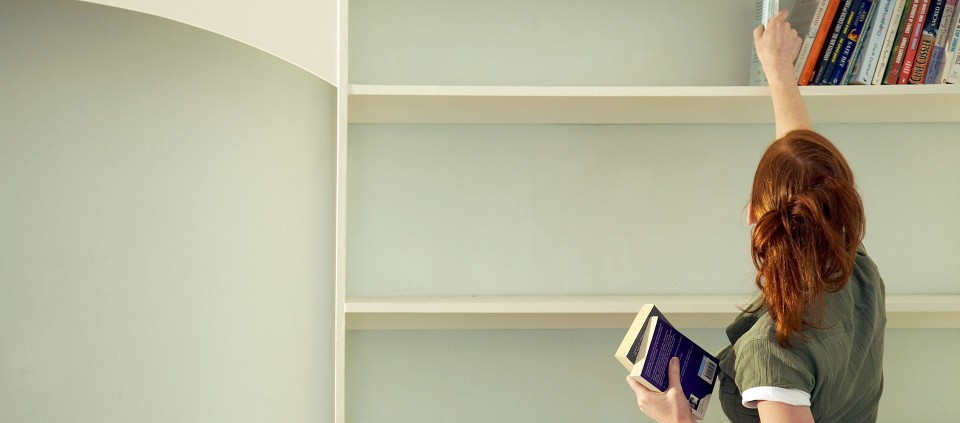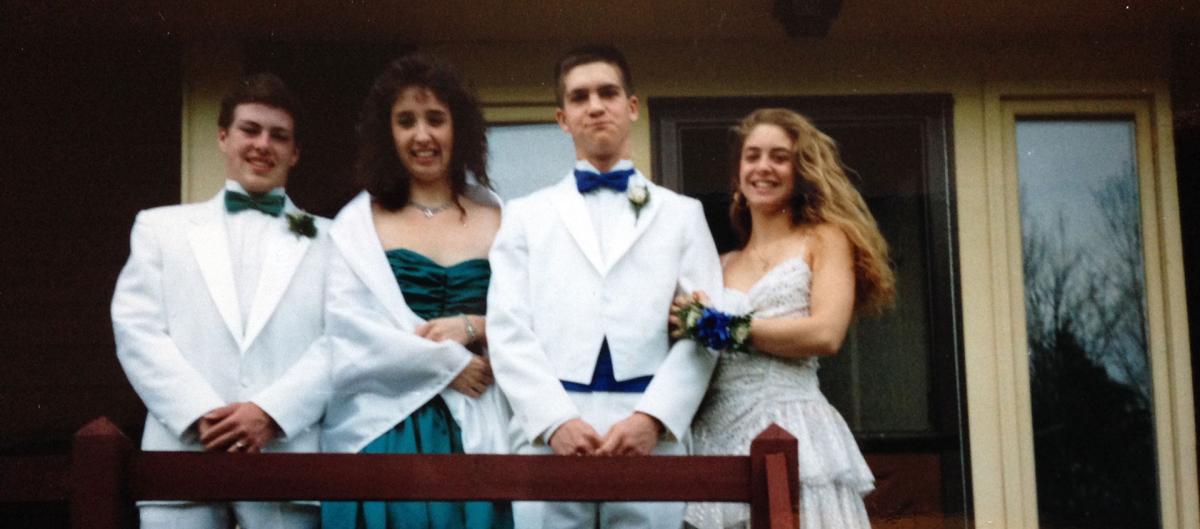Clearing the Clutter and Making Space

Like millions of other people, I read The Life-Changing Magic of Tidying Up: The Japanese Art of Decluttering and Organizing, by Marie Kondo. If the book didn’t change my life, it did infuse my conversations. I couldn’t stop talking about Kondo’s methods for purging unwanted items.
The author’s practice is a little surreal. Objects want to be put to good use, she says. By ignoring our clothes, books, papers, mementos, we actually do them a disservice. Pick the thing up, says Kondo (the ugly sweater, the snow globe, the 10-year-old magazine). Close your eyes and ask, Does it spark joy? If the answer is yes, keep it. If the answer is no, don’t.
The simplicity. The freedom. I read the book twice. Then I shoved it in my overflowing bookcase. I glanced at it from time to time, but soon I’d masked the cover with more titles. Once it was buried, I ignored The Magic completely.
I’ve written about my pack rat tendency but, until recently, I did little about it. Then, last month, my cousin in Maine, in the process of decluttering, uncovered old photographs and sent me one. (This same cousin insisted, eight years ago, that I meet her for a weekend retreat at a place called Kripalu Center for Yoga & Health. She’s well ahead of me on the mindfulness path.)
In the picture, we’re corsaged and hairsprayed, ready to attend our junior prom with dates in white tuxedos. We stand on my parents’ porch. I can see from the gray cast that it’s a typical late-spring day in Boothbay, not warm enough for the dress I’ve chosen. But our faces! We’re innocents, unaware of the anticlimactic evening ahead. I think, seeing the photo, My father was still alive. He may have taken the photo. In the course of a few seconds, I’m back there, age 16.

I’m grateful to be transported. If ever I’d doubted the power of images and possessions, I’m forcefully reminded.
But seemingly benign, utilitarian objects demand my attention, too, whether I’m conscious of the exchange or not. I can glance around my office (more books, dried-up pens, old journals) and replay a daily chorus of shoulds, which lead me away repeatedly from the task at hand.
“Our health, vitality, and joy rely heavily on the synchronicity between our outer world and inner world,” says life coach and Kripalu faculty member Izzy Lenihan. In her Kripau R&R workshop, Clearing the Clutter, Izzy helps us identify messy areas and form action plans. We all have clutter, she says, be it outside or inside. Those who clean compulsively may have a great deal of interior litter. Limiting beliefs (i.e., excuses), procrastination, and a lack of balance also constitute “mess.”
Izzy suggests making a simple list of our top 10 energy drainers. “What drains our energy is what’s cluttering our life. And vice versa,” she says. My fellow participants share their drainers: bills, emails, relationships, closets.
“Too many Word files on my laptop. And books,” I admit. “Stacks of unread books.”
Like Kondo, Izzy asks how such clutter makes us feel. I close my eyes and picture my home screen, all those little blue folder-icons demanding attention. Then I see my bookcase. I feel a familiar, low-grade tension.
“It’s in my stomach,” I volunteer. “Yes,” says Izzy. “Your third chakra, manipura, seat of personal power.”
But I love words. I need books. They help me think and research and plan and create. All those chapters I’m supposed to consume in order to be a better writer myself.
I consider this. What’s the point, if my books remain crowded and ignored? Perhaps possessing fewer pages wouldn’t be terrible. I’ll continue to treasure the sentences and ideas that speak to me, that open up new possibilities and stories. But I don’t have to acquire every recommendation, nor save every one I’ve read.
I set a goal, with Izzy’s help. I plan to sort through my bookshelf.
She doesn’t let us stop there. Goals must be imbued with an emotional reward in order for us to actually complete them, she explains. Here, Izzy’s expertise as a life coach shines.
She takes us through the process in a pointed journaling exercise. What will I gain from purging extraneous titles? With fewer books, I’ll have more space. With more space, I’ll have fewer distractions. With fewer distractions, I’ll be able to focus, to listen to my own voice. In listening to my own voice, I’ll be able to create my own story, to finish my novel-in-progress at last. And, in writing my book, I’ll feel more content, more at peace. Fully expressed.
I see it then. Cleaning out my bookshelf isn’t just about cleaning out my bookshelf.
I make a simple action plan, small things that I can do in seven, 15, 30 days. “You can’t hit a target unless you can see it,” says Izzy. By the end of the year, I’ll bring all surplus books to Goodwill.
Izzy’s closing comment is a quote from Cheryl Richardson: Peace of mind “has much more to do with what you remove from your life than what you can bring in.”
As for the photograph from my cousin, that’s a keeper. It sparks joy. Though the prom dress that’s still in my possession—maybe not.
Lara Tupper, MFA, is the author of two novels, Off Island and A Thousand and One Nights, and Amphibians, a linked short story collection forthcoming in 2021.
Full Bio and Programs